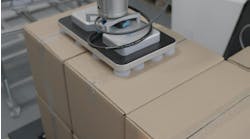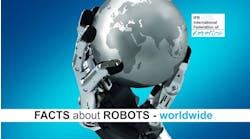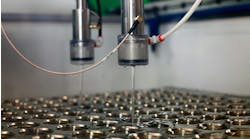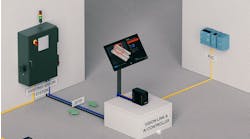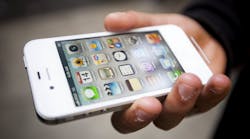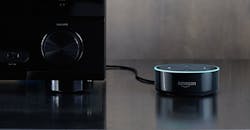In January 2007, just before Apple Inc. unveiled the iPhone, Steve Jobs walked onstage at the Macworld San Francisco trade show and promised not one but three revolutionary products: a touchscreen music player that would replace your iPod, a cell phone, and “a breakthrough Internet communications device.” Then he delivered the punch line: “These are not three separate devices. This is one device.”
It’s now conventional wisdom that this moment represented an inflection point for Jobs’s career and his company, because the iPhone would become the most successful technology product of all time and Apple the world’s most valuable business. It’s easy to forget that the iPhone, now seen as having started the smartphone revolution, wasn’t particularly early to the market. After all, 2007 was the year of peak CrackBerry.
Ten years later, as Chief Executive Officer Tim Cook prepares for today’s keynote at the Apple Worldwide Developers Conference, the annual confab for software developers, the company again seems way behind the hot gadget of the moment, the Amazon Echo. Not only has Amazon.com Inc.’s smart speaker earned rave reviews and sold reasonably well, it’s a powerful way for Amazon to basically take over your life. Once you have the Echo in your kitchen or living room, buying stuff on Amazon becomes so stupidly easy that even a kindergartner can do it. Now that you have a direct line to Amazon’s warehouses, you might as well sign up for Prime, its free-shipping subscription service, and ditch Costco. Once you’ve paid for Prime, you’re also getting Amazon’s streaming service for free, so why not cancel Netflix? And so on.
Impressive stuff, but it's far from clear that smart speakers represent the same kind of breakthrough that smartphones did. In the fourth quarter of 2016, consumers bought something like 4 million smart speakers; they bought more than 400 million smartphones.
Much of the excitement over the Echo has focused on Alexa, Amazon’s artificial intelligence assistant. But what makes the Echo so formidable is the ease with which it can turn a house into an Amazon house. If you’re Apple, which has thrived by creating closed systems in which iPhone owners are pushed to use iTunes and Mac owners nudged to buy an Apple TV player, that should be scary.
My colleagues Mark Gurman and Alex Webb reported last week that Apple is manufacturing and preparing to unveil its own home assistant, an Echo-like device powered by Apple’s virtual assistant, Siri. Based on their report, my guess is that Cook will adapt Jobs’s pitch to promote the me-too speaker not as an assistant but as another three-in-one device.
Cook will say this product is the best music speaker you can buy. Gurman and Webb noted that the speaker will sound better than its competitors, and they teased the possibility of acoustic tuning similar to that in Sonos’s high-end audio equipment. He’ll argue that integration with FaceTime and iMessage makes it the best home communicator on the market. And he’ll present it as the best way to get stuff done around the house, including things as basic as turning off lights using Apple’s HomeKit.
What’s missing is a big retail partnership. (You listening, Marc Lore?) But if there’s any company that excels at building shopping experiences into gadgets, it’s Apple, not Amazon. The iPod blew up and remade the music industry, and the iPhone created the app as a software category. To date, Apple has paid out more than $70 billion to app developers, including $10 billion since January. If Apple's speaker is a hit, it could help Cook continue to grow Apple's services revenue ($24 billion last year), which includes apps, movies, and music, and which is more profitable than its hardware business. Cook has said he hopes to double that figure by 2020.
While it’s possible that Apple has begun a long decline, one that will yield only incrementally better iPhones, return cash to investors, and produce few meaningful innovations, I think it’d be a mistake to write off an Echo clone. Apple is good at this “newish product” thing.
